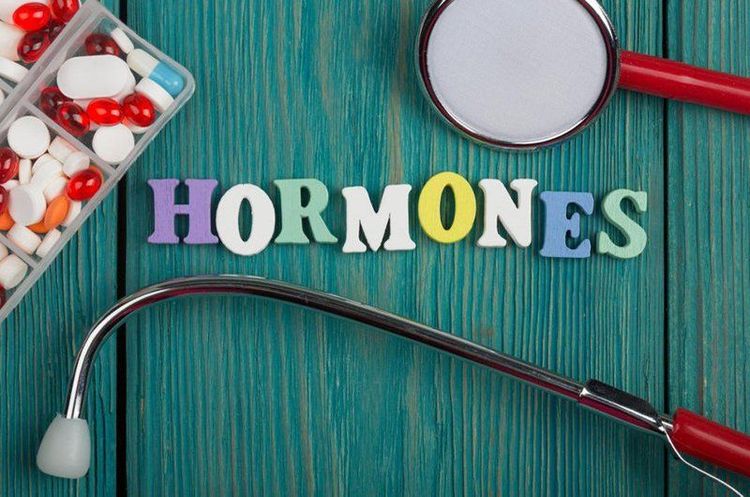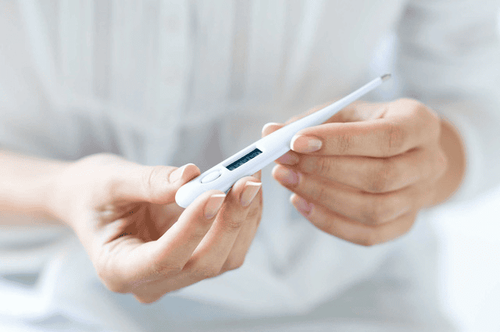Feeling down, sad, or anxious is very common in women before and during their menstrual cycle. It’s easy to cry during your period, even when you can’t understand what’s happening. This is due to the menstrual cycle and ovulation causing hormonal changes throughout the month. The result of this disruption is emotional turmoil in the weeks leading up to menstruation, often part of premenstrual syndrome (PMS).
1. Is it normal to cry easily during your menstrual cycle?
Up to 75% of women experience some level of discomfort from PMS symptoms. These symptoms include both physical and mental abnormalities. If you feel down, anxious, irritable, or find yourself crying easily during your menstrual cycle, this is completely normal.
Many women experience this in very different ways. If sadness is the only symptom, the woman herself may feel confused when she suddenly becomes sensitive to her menstrual cycle. However, this is not the only case, and the underlying cause is hormonal changes
2. Why are women more prone to crying during their menstrual cycle?
The exact reason for true sadness or sensitivity during the menstrual cycle is not yet clear.
However, experts believe that changes in blood sex hormones, specifically the drop in estrogen and progesterone that occurs after ovulation, are the main cause of this condition.
Low serotonin levels
Serotonin is sometimes referred to as the 'happiness chemical.' It helps regulate a person's mood, increase appetite, and improve the ability to get a good night's sleep.
The fluctuations of female sex hormones in the premenstrual days reduce serotonin production. As a result, when serotonin levels are low, a woman may feel sad, even when there is nothing wrong.

Poor sleep quality
Sleep quality can also affect a person's mood. As serotonin levels decrease, it becomes harder for women to get enough rest, leading to constant sleep deprivation, mental fatigue, and irritability.
The lack of rest, combined with continuous stress and pressure, can cause anxiety and make it easier to cry. This can also create a vicious cycle, as feeling sad or stressed can further disrupt sleep.
Changes in appetite
Changes in appetite or a strong desire for sugary or carbohydrate-rich foods are common in women with premenstrual syndrome. However, consuming these foods can negatively affect mood.
According to a study, carbohydrates temporarily boost serotonin levels, making the body feel more at ease. This may explain why the body often seeks comfort by reaching for sweet foods. However, consuming starches quickly or in excess only provides temporary relief from stress, but can later lead to deeper feelings of depression.
Reduced physical activity
Other premenstrual symptoms, such as abdominal pain and bloating, can make the body feel more inclined to rest and be less active than to exercise or engage socially outside of work hours.
At this time, a lack of physical activity can also worsen your mood, making you feel even worse.
3. How to treat crying easily during menstruation?
Crying easily during menstruation typically resolves within a few days. If it doesn’t improve on its own or if you feel extremely sad, you should discuss with your doctor about appropriate medications to help regulate your mood.
Initial therapy may include contraceptive methods, such as oral birth control pills. Birth control pills prevent ovulation and hormonal fluctuations, which can help improve abnormal mood symptoms.
Additionally, your doctor may prescribe antidepressants, such as selective serotonin reuptake inhibitors (SSRIs).

4. How to manage menstrual sensitivity at home
Mild depression and crying before menstruation usually go away quickly if women know how to adjust their diet or lifestyle:
Instead of indulging in sugary foods like candy or ice cream to satisfy cravings, try eating fish or other foods rich in omega-3 fatty acids. These have been proven to be reliable food sources for reducing feelings of depression.
Try to incorporate strength-building exercises or other physical activities into your daily routine, even if you're feeling uncomfortable due to bloating, menstrual pain, or cramps. When you exercise, your body releases chemicals called endorphins, which help improve your mood quickly.
If bloating or menstrual pain prevents exercise, women should also avoid salty foods, as they can worsen water retention. At this time, low-dose over-the-counter diuretics may also be helpful.
Distracting yourself from negative emotions and thoughts may not be easy, but if successful, it can bring great results. Therefore, changing your mood by listening to your favorite music, watching comedy or horror movies, and spending time with friends can also be beneficial.
Yoga can naturally boost endogenous serotonin levels and increase feelings of happiness, helping to reduce stress and anxiety.
If insomnia makes you feel worse, try to improve your late-night habits to make it easier for your body to fall asleep. You should turn off electronic devices one hour before bedtime and reduce caffeine intake in the evening.
Aromatherapy can also be beneficial. Try essential oils known for their calming effects, such as lavender, rose, and chamomile.
5. When should you see a doctor?
Feelings of extreme sadness, depression, or anxiety often require professional care and support. If you constantly feel sluggish, empty, or hopeless, you may be experiencing depression.
Although some women experience symptoms of premenstrual syndrome, if the condition worsens, premenstrual dysphoric disorder (PMDD) may be suspected, which includes: Bipolar disorder, Major depressive disorder, Suicidal thoughts or actions, Self-harm tendencies, Alcohol abuse disorder, Eating disorders, Schizophrenia, Anxiety disorders, Persistent or uncontrollable crying, Severe depression or sadness that affects daily life, which may be a more severe form of premenstrual syndrome known as premenstrual dysphoric disorder (PMDD).
In this context, women should be referred to a mental health specialist as soon as possible for appropriate treatment and proactive management for the next cycle.
In summary, crying easily during menstruation is very common and may be related to premenstrual syndrome. Mild sadness and depression or increased sensitivity to the menstrual cycle can usually be managed at home by making lifestyle changes. However, if the sadness becomes overwhelming and impacts daily activities, the woman may be experiencing a medical condition that requires treatment or support from a mental health specialist to help her cope and make timely adjustments.
If you require consultation and examination at Vinmec hospitals within the national healthcare system, please make an appointment on the website (vinmec.com) for assistance.
To arrange an appointment, please call HOTLINE or make your reservation directly HERE. You may also download the MyVinmec app to schedule appointments faster and manage your reservations more conveniently.
Reference source: healthline.com










